Did You Know: Eunuch's are cremated silently, here's why no outsiders are allowed in their final journey
By Benson | Published: December 2, 2022 06:50 PM2022-12-02T18:50:00+5:302022-12-02T18:50:00+5:30

In India, eunuchs are known as Hijras, or Kinners, or "third gender," neither a he nor a she. While they were once worshiped in the Hindu world and also worked for Islamic rulers, they are now widely feared. Even though "Indians attribute a sacred power to them ... (they are) often considered vulgar and are sometimes despised, mostly silently, and harassed," according to Dr. Serena Nanda, a professor of anthropology, who has written a book on Kinnars.
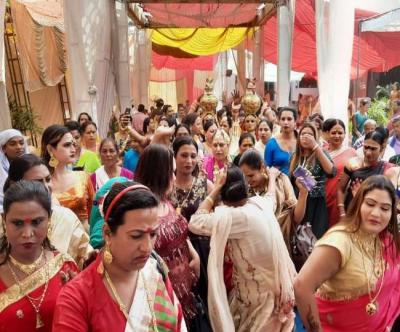
Having accepted the harsh life of a third gender as their fate, many of them do not have great ambitions or big dreams. Their last rites are carried out in a normal way. Not many have witnessed the death of a eunuch. Since death is a somber affair, burial or cremation takes place without any fanfare. Some also believe that they carry out their death rituals at night.
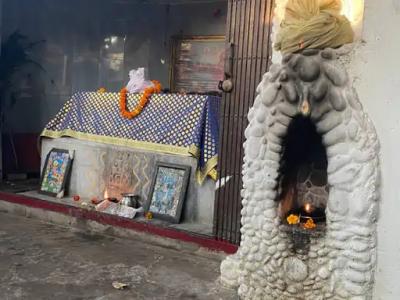
Developing filial and social relationships that cause mourning on one’s demise is limited to very few.
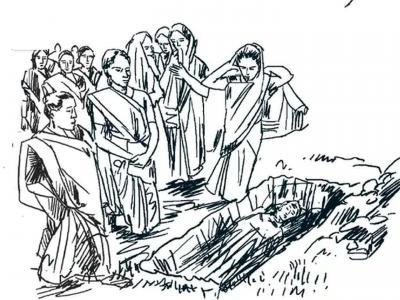
When a Kinnar comes to know about her death, she will not go out anywhere but will sit in a corner of the house without consuming any food or tea and surviving only on water, similar to birds and beasts. She immerses herself in prayer. In fact it is the best way to welcome a painless death. Other Kinnars start praying, ask for the blessings of the dying eunuch and beg for her forgiveness, so that she is not born as eunuch in the next birth.
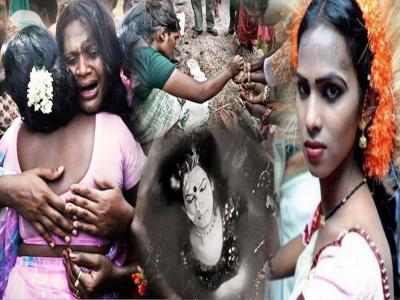
After all these rituals, the funeral procession of eunuchs is taken out in a very secretive way when it is dark. The big reason behind this is the belief that if a non-eunuch sees that dead body, then he has to become a eunuch in the next life, that is, the eunuch society takes out the funeral procession at night to fulfill their responsibility towards other societies
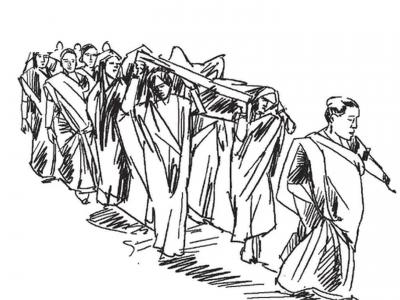
The dead body is beaten with shoes and slippers before lifting the carcass.After the death of any eunuch, these people do not celebrate mourning because they believe that this gives them the freedom from this hellish life
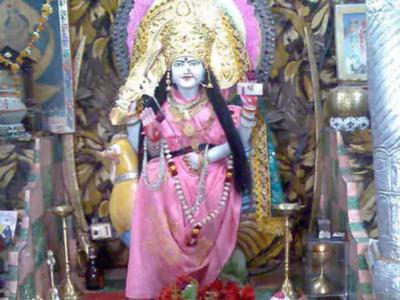
The dead body is buried in Kinnar society. They are not given fire.
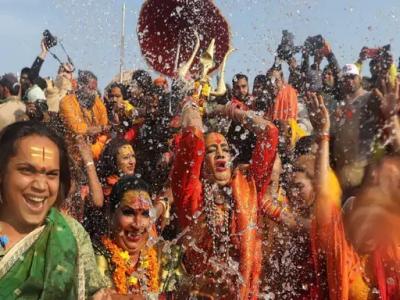
Upon hearing of the death of a eunuch, her eunuch friends gather. They inform other Kinnars and relatives (if available). The group members also inform the crematorium authorities, who are requested not to disclose the death of the eunuch. Though most eunuchs are poor, they all contribute for these funeral requirements. The last rites are performed in a simple manner. Her body is ceremonially bathed and wrapped in clean, mostly white cloth. Jewellery, is removed before cremation.
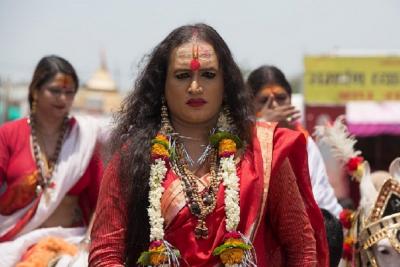
Water from either the Ganga or from any other holy river is poured into the mouth of the deceased. Before cremation, any strings etc that tie the body are removed, symbolising the severance of all ties of the deceased with this world. The body is to be set alight by the male blood relative of the deceased (if present) or the senior most member of the band.

Once the skull of the dead body bursts (usually an hour after lighting the pyre), the attendant people face the pyre and join hands in prayer, after which they return home. This practice of cremation is universal among Hindu Kinnars. Contrary to popular belief, Hindu eunuchs are never buried but invariably cremated.

















